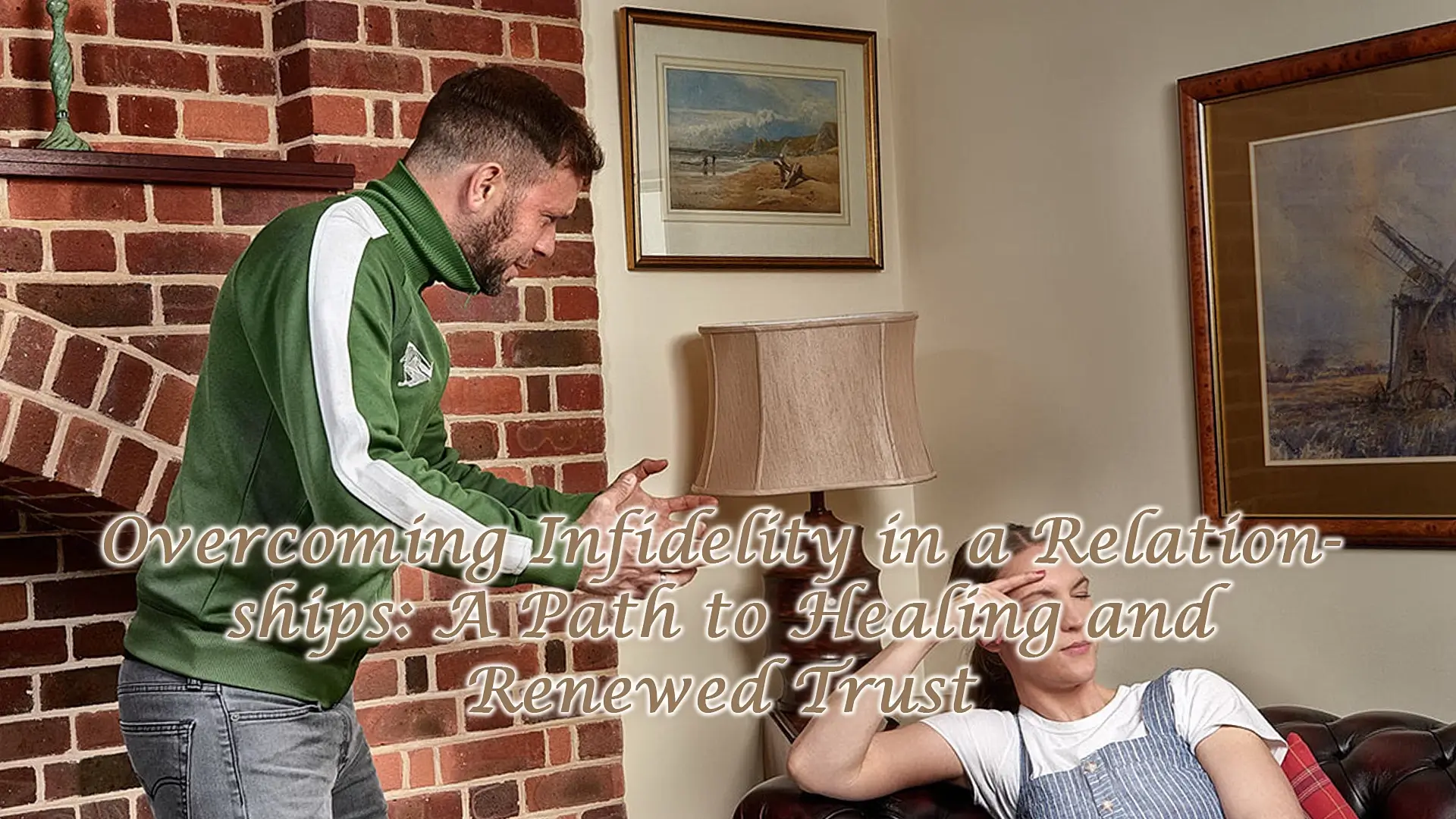Infidelity In Relationships: How To Overcome
Infidelity in relationships can be a devastating experience, leaving individuals grappling with a complex mix of emotions, including betrayal, hurt, and anger. However, despite the pain, many couples find ways to overcome infidelity and rebuild their relationships stronger than ever. In this article, we will explore the causes of infidelity, the emotional aftermath, and practical steps to overcome this challenging situation.
Understanding the Causes
Infidelity is a multifaceted issue, often stemming from a combination of factors. It could be rooted in emotional dissatisfaction, lack of communication, or personal insecurities. Identifying the underlying causes is crucial for both partners to address the root issues and work towards preventing a recurrence.
The Emotional Aftermath
The aftermath of infidelity is characterized by a rollercoaster of emotions. The betrayed partner may experience feelings of shock, anger, sadness, and a profound sense of loss. On the other hand, the partner who strayed may grapple with guilt, remorse, and fear of losing the relationship. Acknowledging and validating these emotions is a vital first step in the healing process.
Open Communication
One of the cornerstones of overcoming infidelity is open and honest communication. Both partners need to express their feelings, concerns, and expectations without judgment. Establishing a safe space for dialogue fosters understanding and helps rebuild the broken trust. Professional counseling or therapy can provide additional support in facilitating these conversations.
Rebuilding Trust
Rebuilding trust is a gradual process that requires commitment and consistency. The partner who betrayed the trust must take responsibility for their actions and demonstrate genuine remorse. Transparency becomes crucial during this phase, with open access to communication devices and a willingness to answer questions. Trust is not easily regained, but small, consistent actions over time can pave the way for its restoration.
Setting Boundaries
Establishing clear boundaries is imperative to prevent future transgressions. Both partners should openly discuss their expectations and set mutually agreed-upon boundaries to create a sense of security within the relationship. This process involves renegotiating the terms of the relationship and ensuring that both individuals feel comfortable and respected.
Self-Reflection and Personal Growth
Infidelity often highlights personal vulnerabilities within each partner. Taking time for self-reflection allows individuals to understand their own needs, fears, and insecurities. Engaging in personal growth and self-improvement not only benefits the individuals involved but also contributes to the overall health of the relationship.
Seeking Professional Help
Navigating the aftermath of infidelity can be overwhelming, and seeking professional help is a wise decision. Relationship therapists or counselors specialize in guiding couples through the healing process, offering valuable insights, coping strategies, and tools for effective communication. Professional intervention can accelerate the healing journey and provide a neutral perspective.
Cultivating Forgiveness
Forgiveness is a crucial component of overcoming infidelity. While it may not happen overnight, both partners need to cultivate a genuine willingness to forgive and move forward. Forgiveness does not condone the betrayal; rather, it releases the hold of resentment and allows the relationship to evolve beyond the pain.
Rekindling Intimacy
As trust is rebuilt, rekindling intimacy becomes an essential aspect of healing. Physical and emotional intimacy fosters connection and helps partners rediscover the joy and fulfillment within their relationship. It’s important to approach intimacy with patience, sensitivity, and a commitment to mutual satisfaction.

And so
Overcoming infidelity in a relationships is undoubtedly a challenging journey, but with dedication, communication, and a commitment to personal and relational growth, many couples successfully navigate through the storm and emerge stronger on the other side. By understanding the root causes, embracing open communication, and seeking professional guidance when needed, couples can turn the painful experience of infidelity into an opportunity for renewal and deeper connection. Remember, healing takes time, but with concerted efforts from both partners, a brighter, more resilient future awaits.




The discussion about forgiveness and its role in the healing process is well-articulated. The article provides a nuanced perspective on forgiveness, emphasizing that it is a choice and not a one-time event
I appreciate the article’s recognition that healing is a gradual process. It’s realistic in acknowledging that rebuilding trust takes time and requires commitment from both partners.
The article’s emphasis on professional guidance and counseling is a key takeaway. Seeking help from a qualified therapist can provide a structured and supportive environment for couples working to mend the wounds caused by infidelity.
The author highlights the significance of introspection and self-awareness in overcoming infidelity. It’s refreshing to see a focus on personal growth as a crucial element in the process of rebuilding a relationship.
This insightful article emphasizes the importance of communication and rebuilding trust after infidelity. It offers practical steps and guidance to help couples navigate the challenging journey towards healing.
Pingback: How To Trust Your Partner | Magazine4You